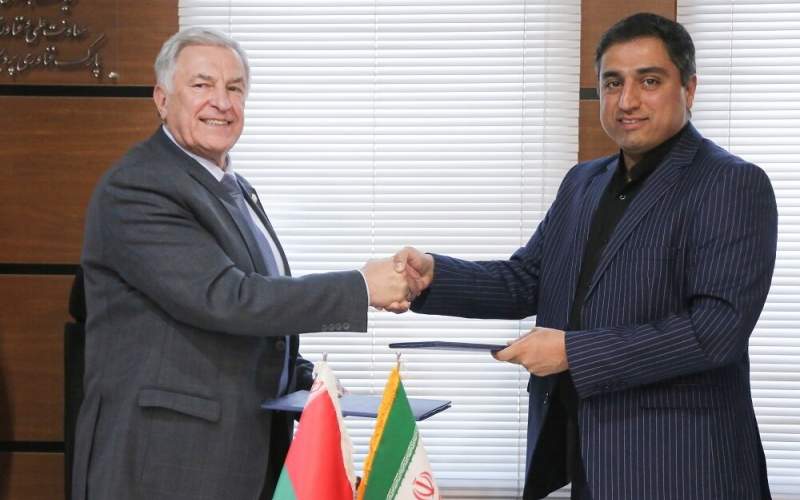The Iran Project
: Iran and Belarus signed a memorandum of understanding on boosting technological cooperation on Wednesday.
Wednesday 13 December 2023 - 21:04
Story Code : 408718
Source : Tehran Times
Tehran, Minsk sign technological MOU
The MOU highlights expanding technological cooperation, holding joint events, participating in mutual exhibitions, sharing technical knowledge, dispatching technological delegations, and making joint investments.
The agreement was reached following a comprehensive cooperation roadmap signed in March by Iranian President Ebrahim Raisi and his Belarusian counterpart Alexander Lukashenko.
Sanctions lead to scientific progress
In March, Iran’s first vice president said that Western powers’ unilateral sanctions on countries that seek independence have provided a great chance to rely on their own scientists’ expertise.
The comment was made by Mohammad Mokhber at a meeting with Alexander Lukashenko, the president of Belarus, who made a two-day visit to Tehran.
“The Islamic Republic of Iran has been able to break considerable grounds in the fields of science and technology by overcoming these sanctions,” Mokhber said.
He stated that the two nations may leverage Iran’s experience coping with sanctions to strengthen their collaboration.
Mokhber noted that Iranian President Ebrahim Raisi has stressed the need to swiftly put the Iran-Belarus accords into effect. He added that “the North-South Transportation Corridor provides a great potential for collaboration between the two states.”
A foundation for a new level of reciprocal ties in various sectors will be established as the two countries signed a comprehensive cooperation roadmap and seven MOUs, the vice president remarked.
Scientific co-op for a better world
On November 3, Vice President for Science, Technology, and Knowledge-based Economy, Rouhollah Dehqani-Firouzabadi, condemning unilateral coercive measures against Iran's knowledge-based and scientific companies, announced Iran's readiness for scientific and technological cooperation with other countries to make a better world.
Referring to the significant role of knowledge and innovation and their tremendous impact on the progress of nations, Firouzabadi said Iran's civilization has honored knowledge throughout history.
“Our ancient teachings and the contributions we have made to the advancement of science and technology is a proof of that saying.”
He made the remarks at the 15th session of the United Nations Human Rights Council (UNHRC) Social Forum held from November 2 – 3, in Geneva, IRIB reported.
Iran's developments in the field of science and technology, improving people's welfare by using science and technology capacities, Iran's strategies in dealing with the coronavirus, Iran's technological solutions to improve the health of society, technological employment and solving social problems with soft technologies were among the most important topics of Firouzabadi's speech.
“Since the establishment of the United Nations, Iran has remained committed to multilateral cooperation, including global cooperation through the United Nations.
“We are keen to engage with the international community and share our research with them while benefiting from the best practices, developments, and achievements of other countries in the fields of science, technology, and innovation,” IRIB quotes Firouzabadi as saying.
The innovation ecosystem and knowledge-based companies in Iran are a testimony of the sustainable potential of our youth and the pivotal role of women in management levels, he said.
He went on to say that knowledge-based companies play a key role in developing new technologies and solutions to face today's challenges, they have a profound impact on the preservation of basic human rights such as the right to life, health, work and development, and at the same time they deal with inequalities, poverty and unemployment in society.
“Despite unilateral economic sanctions and challenges in accessing coronavirus vaccines and related medical equipment, Iran has achieved an impressive 76 percent vaccination rate among its population against COVID-19,” Firouzabadi added.
Iran's active participation in international cooperation and sharing knowledge and initiatives to strengthen the global response to this epidemic, especially in developing and less developed countries, demonstrate its unwavering commitment to promoting human rights and improving the well-being of communities around the world.
# Tags











